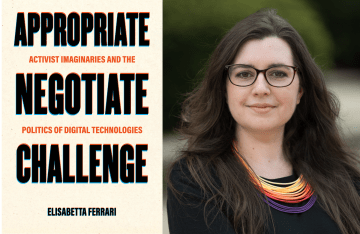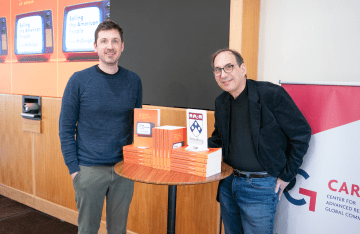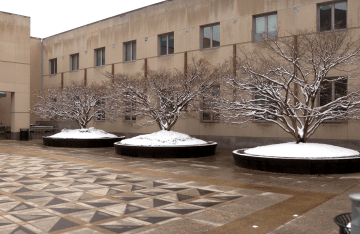Back at Annenberg: Se-Hoon Jeong (Ph.D. ‘08)
In this new Q&A series, we catch up with Annenberg alumni who return to Penn’s campus for a visit.
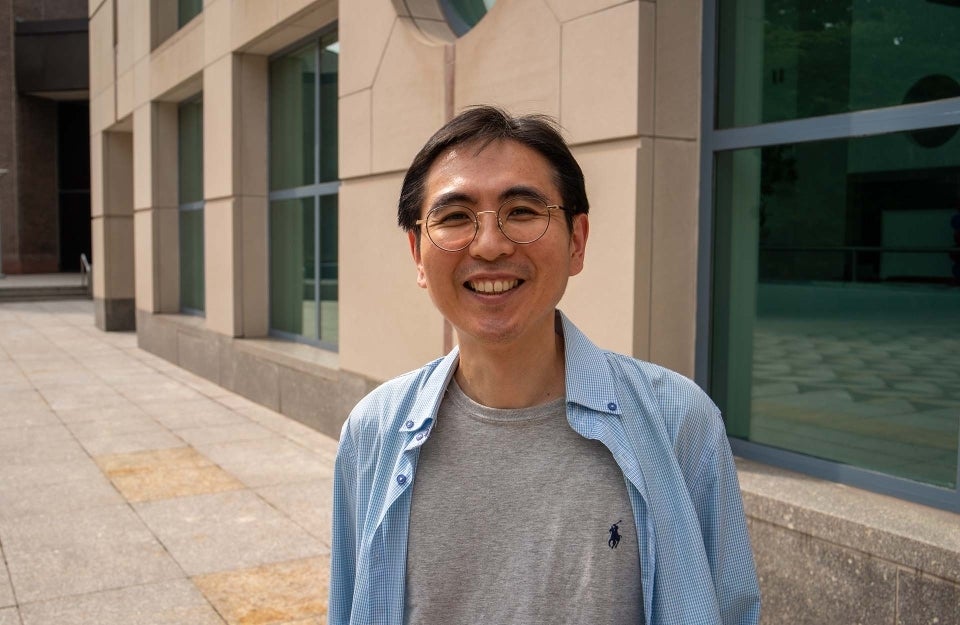
Se-Hoon Jeong
There are some Annenberg School alumni who are familiar faces in the halls of 3620 Walnut Street, either because they live nearby, have jobs at Penn, collaborate closely with our faculty, or just can’t get enough of the place. And we love to see them.
Se-Hoon Jeong is not one of those.
It had been 15 years since Jeong received his Ph.D. and departed Philadelphia, and the Seoul resident and Korean University professor had not been back since. Upon hearing that he would be visiting the Annenberg School, I thought it could be a great opportunity to meet and help others get to know more of the greater Annenberg community.
We’re calling the series “Back at Annenberg.” If you’ll be back any time soon, let me know!
And without further ado, let’s catch up with Se-Hoon Jeong!
What brings you back to Annenberg?
I'm visiting the U.S. with a group of undergraduate and graduate students from Korea University who are interested in media and technology. We’ve been to Boston, New York, and now Philadelphia and we’ve visited several universities and corporations, including the MIT Media Lab, the Boston University Division of Emerging Media Studies, the Meta office in New York, the New York Times, Columbia Journalism School, and now we’re here at the University of Pennsylvania.
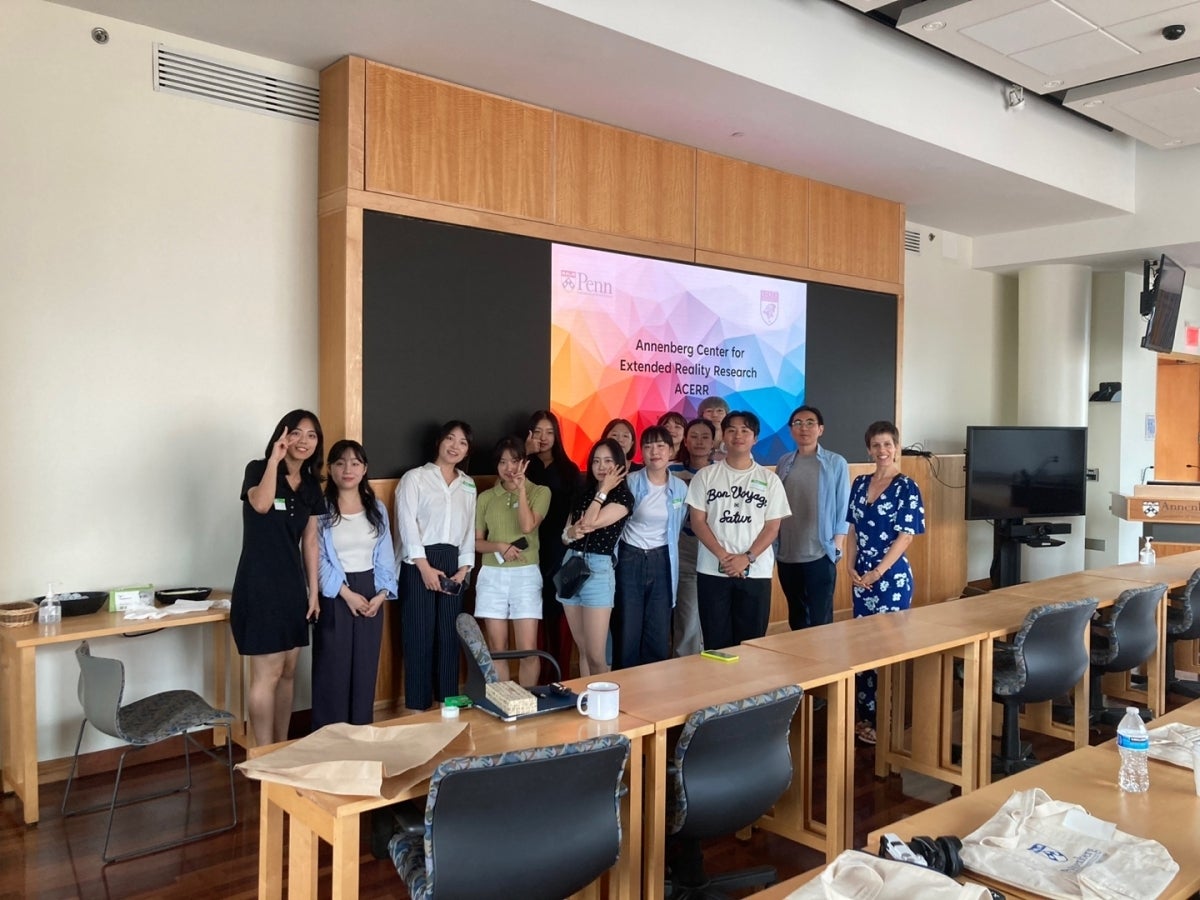
Katerina [Girginova, Ph.D. ‘19] and Kyle [Cassidy] from the Annenberg Center for Extended Reality Research presented their work to the students, and we also met with Andy Tan [Ph.D. ‘11 and Annenberg Associate Professor] and his Health Equity Communication Lab to learn about their work.
What have you been doing since you graduated in 2008?
After I graduated, I spent a year at Indiana University at Indianapolis. And then after that, I moved to Korea University as an assistant professor, and I've been there ever since. As a full professor now, I teach and do research, mainly. And of course, I did a little bit of service, such as being the Director for Graduates Studies and Undergraduate Studies for the Communication Research Institute at Korea University.
Is there a place in the Annenberg School building that holds special memories for you?

There are multiple places, but if I were to name one, I think it would be the library. These days, libraries are almost totally electronic. It was only partly that way when I was a student from 2003 to 2008. I often had to get into the hard copies of journals from the 1960s, ‘70s, and ‘80s. So I was quite glad to see the journals are still there and well preserved. For me, seeing those brings very good memories.
I just took my students [to the Annenberg library], and they were born in 2000, 2001, 2002. They hardly have any experience reading hard copy books. They read e-books these days, so it was kind of a new experience for them.
You study persuasive messaging, and the whole planet has just been through a pandemic where the value of persuasive messaging was made very clear. How did you see persuasive messaging working or not working during COVID?
Health communication is an area that I have been studying for a long time. I conducted a series of studies on health related misinformation related to COVID-19 and how it leads to misbeliefs and behaviors related to vaccination or preventive measures.
In looking at why people fall for misinformation, there are two styles of processing information: One is a more systematic way of processing information, where you spend a fair amount of time deliberating what the information is about. About half the population does this.
And then the other half uses a more heuristic way of processing information which is to go by “rules of thumb” and quickly skim through the message. We found that one of the reasons why people believe misinformation is because they process information in a more heuristic way. And interestingly message fatigue — being exposed to too much COVID information — can lead people to use heuristic processing.
What else have you been studying?
Another area of my research is related to media usage: people's use of mobile media and newer technologies — including VR and AR — and how the use of these media technologies can impact people psychologically, as well as change their social relationships.
As one example, media technologies could help in the sense that people find them enjoyable and entertaining, but it doesn't necessarily make people learn more easily or gain more knowledge. That’s an interesting finding of my research.
Is there any message you want to send to your former Annenberg classmates?
It’s a great experience to be back to Annenberg, although it was a very short visit for me. Strongly recommended!
Are you an Annenberg M.A.C or Ph.D. alum with plans to return to Philadelphia? Please let us know!

